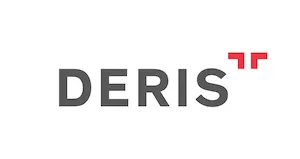Introduction
The new IP Code entered into force on January 10 2017 and contains provisions regarding the profession of patent and trademark attorneys.
An ad hoc regulation, which entered into force on May 18 2017 and was issued under the new IP Code, establishes the code of conduct by which patent and trademark attorneys are bound.
The new IP Code and the ad hoc regulation are set to have a major impact on the profession as they establish new rules regarding the responsibilities of patent and trademark attorneys, especially from a disciplinary standpoint.
Before the new IP Code came into force, Turkey had:
- l no nationwide umbrella organisation covering the profession;
- l no specific act or provision establishing such an organisation or organising the profession at a national level;
- l no code of conduct rules for the profession;
- l no penalties or legal basis for taking disciplinary measures against professional malpractice and misconduct;
- l no officially recognised body or authority to penalise professional malpractice and misconduct or to enforce the professional rules of conduct;;
- l no effective protection of the title of patent and trademark attorney (for want of legal basis);
- l no penalties for abusive or improper use of such title (for want of legal basis); and
- l no attorney-client privilege (for want of legal basis).
The new IP Code partly addresses the above situation as it regulates the third, fourth and fifth points. However, it leaves the rest unaddressed (ie, those relating to organising and running the profession on a countrywide basis, the protection of the professional title and attorney-client privilege).
A double-headed profession and regime
As approximately 60% of patent and trademark attorneys registered before the Turkish Patent and Trademark Office (formerly the Turkish Patent Institute) are also attorneys at law, they should be considered in two groups based on whether they are attorneys at law.
Patent and trademark attorneys wh o are not attorneys at law
Before the new IP Code and the ad hoc regulation came into force, no code of conduct rules applied to patent and trademark attorneys who were not attorneys at law. Therefore, there were neither disciplinary penalties against professional misconduct for this group nor a regulatory body empowered to enforce such penalties.
Patent and trademark attorneys registered with Bar as attorneys at law
Even before the new IP Code and the ad hoc regulation came into force, patent and trademark attorneys who were attorneys at law met most of the internationally accepted code of conduct criteria as they are bound by the Attorneyship Law (1136) and the Code of Conduct of the Union of Turkish Bar Associations and subject to the penalties thereunder through the bars they are registered with.
After the new IP Code and the ad hoc regulation came into force, patent and trademark attorneys who are also attorneys at law continued to be bound concurrently by the Attorneyship Law and the Code of Conduct of the Union of Turkish Bar Associations.
However, there appear to be no decisions indicating the applicability of the Attorneyship Law and the Code of Conduct of the Union of Turkish Bar Associations to activities performed before the Turkish Patent and Trademark Office by patent and trademark attorneys who are also attorneys at law.
New uniform rules
Until the new IP Code came into force, the fact that patent and trademark attorneys who are not attorneys at law were not bound by any rules of conduct and could not be penalised thereunder created an enormous imbalance and ambiguity in the practice, not only for patent and trademark attorneys, but also for their clients and the Turkish Patent and Trademark Office.
Under the new IP Code, all patent and trademark attorneys, irrespective of whether they are attorneys at law, are subject to and punishable by uniform rules of conduct in the exercise of their professional activity with peers, clients and the Turkish Patent and Trademark Office.
However, for some rules (eg, those relating to advertising), the solutions retained by the Code of Conduct of the Union of Turkish Bar Associations and the ad hoc regulation for patent and trademark attorneys differ considerably.
As to the 'prohibition of advertising' provided in Article 55 of the Attorneyship Law, the Union of Turkish Bar Associations Regulation on the Prohibition of Advertising of November 21 2003 (as amended on September 7 2010) explicitly rules under Article 6:5 that titles "such as 'patent attorney' and 'trademark attorney' cannot be used on the letterheads, presentation cards and other printed material".
This situation puts attorneys at law at a clear disadvantage, as they are prohibited from including their 'patent attorney' and 'trademark attorney' titles on printed materials, despite earning them through qualification exams held at the Turkish Patent and Trademark Office, which is a public body, because the use of such titles is deemed as advertising.
How these opposing solutions will co-exist and whether they can be concurrently applicable without disadvantaging one group over the other remains to be settled by case law.
Legal framework
The legal framework for the profession of patent and trademark attorneys consists of:
- l the Law on the Establishment and Functions of the Turkish Patent Institute (5000/2003);
- l the new IP Code (6769) of January 10 2017 amending Law 5000/2003 in respect of the profession; and
- l the ad hoc Regulation on the Code of Conduct and Discipline of Patent and Trademark Attorneys, which entered into force following its publication in the Official Gazette on May 18 2017.
The only provision in Turkish legislation about the profession is in Law 5000/2003 concerning the establishment and functions of the Turkish Patent and Trademark Office, which, under Article 30, provides for the requirements for becoming patent attorneys and trademark attorneys and for the legal basis for the Turkish Patent and Trademark Office to organise qualifying examinations.
For this reason, Articles 181 and 182 of the new IP Code are directed to amend Article 30 of Law 5000/2003 and to introduce a new Article 30A to address the third, fourth and fifth points previously mentioned.
The first legislation for organising the profession nationally was the Draft Law for the Protection of Patents and Utility Models prepared in the 1990s by an ad hoc commission under the aegis of the then State Planning Organisation, which included an entire chapter on the organisation of patent attorneys as an autonomous body. When this law was enacted on June 24 1994 as Decree Law 544/1994, this chapter was simply removed due to the fact that the organisation of a professional body and the disciplinary penalties it provided could not be established by decree law and required an act of parliament.
Therefore, the first provision in Turkish legislation concerning the profession of patent and trademark attorneys derives from Decree Law 544/1994 on the Establishment and Functions of the Turkish Patent Institute, which, under Article 30, sets out the following:
- l professional qualification
requirements, namely:
- ¡ Turkish citizenship;
- ¡ legal and juridical capacity;
- ¡ professional liability insurance in the amount determined by the Turkish Patent and Trademark Office;
- ¡ legally domiciled in Turkey;
- ¡ no criminal convictions;
- ¡ at least four years in higher education; and
- ¡ success in qualification examinations.
- l separate qualification examinations for patent attorneys and trademark attorney;
- l separate registers for patent attorneys and trademark attorneys;
- l acting and representation in the name of rights holders before the Turkish Patent and Trademark Office limited solely to registered patent attorneys and trademark attorneys;
- l distinction between attorneys who are legal or physical persons;
- l requirement that legal person attorneys are represented by physical person attorneys;
- l patent attorneys and trademark attorneys are subject to the mandate provisions of the Code of Obligations;
- l persons who have served for at least three years in the Turkish Patent and Trademark Office as president, vice president, department chief, section chief, expert or deputy expert, upon leaving office, have the right to exercise the profession without sitting the qualification examinations.
Article 30 of Decree Law 544/1994 has been included in Law 5000/2003 with the same number (Article 30), without any textual modification but excluding the last paragraph concerning persons who, having served at least three years in the Turkish Patent and Trademark Office, are exempted from sitting the qualification examinations. Evidently, some former Turkish Patent and Trademark Office professionals have shifted to private practice on the basis the last paragraph.
IP Code: Articles 181 and 182
The new Article 181 repeats and replaces the earlier version of Article 30 of Law 5000/2003 by introducing additional provisions as to the representation of legal person attorneys by physical person attorneys, as well as their civil and penal responsibility, and by ruling that registration with the Turkish Patent and Trademark Office is mandatory to exercise the profession. However, it retains
the same professional qualification requirements and structural basis of Article 30 when Law 5000/2003 entered into force in November 6 2003. Even with the new IP Code, apart from redactional differences, the structural basis of this provision has remained unchanged since the first version of Article 30 under Decree Law 544/1994 back in June 1994.
The major changes affecting the profession in the new IP Code are in Article 182, which introduces a new Article 30A to Law 5000/2003. Under the new Article 30A:
- l a new professional code of conduct is adopted as specified under the aforementioned ad hoc regulation;
- l new penalties are adopted against breaches of professional code of conduct rules; and
- l a new disciplinary board is established as an organ of the Turkish Patent and Trademark Office with authority to penalise breaches of professional code of conduct rules.
Code of conduct rules
The new code of conduct rules are specified under Article 5 of the ad hoc regulation. The following table compares these rules with the internationally recognised rules as of the previous situation under the repealed legislation and as of the current situation with the new IP Code and ad hoc regulation. The table also identifies the Code of Conduct Rules of the Union of Turkish Bar Associations to which patent attorneys and trademark attorneys who are also attorneys at law are bound (ie, double qualified or 'DQ').
To view the full article click here
The content of this article is intended to provide a general guide to the subject matter. Specialist advice should be sought about your specific circumstances.

